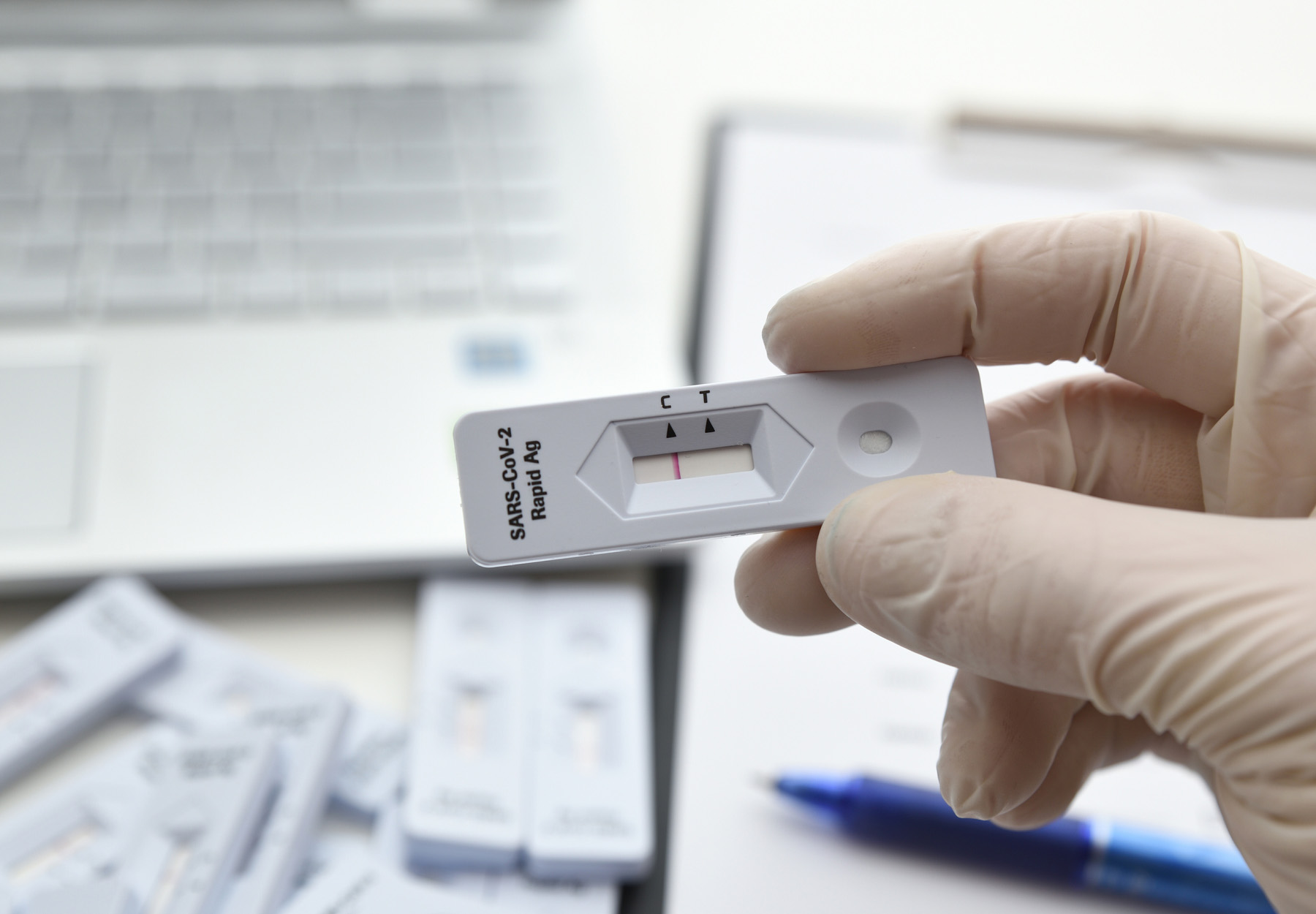While real-time reverse transcriptase–polymerase chain reaction (RT-qPCR) testing is the current gold standard for diagnostic testing for SARS-CoV-2, rapid antigen testing has emerged as an important alternative for screening asymptomatic people. Rapid antigen testing is cheaper and offers faster results than RT-qPCR testing, however, it has been criticized for being less accurate. According to a new study published March 18 in JAMA Network Open, that criticism may be at least somewhat unfair.
Researchers from several medical schools and companies in New York wanted to know if single vs repeated rapid antigen testing made a difference when it comes to accuracy of these tests for screening asymptomatic people in the workplace. They found that, when employees were offered a repeated rapid antigen test, accuracy increased from 38 percent when offered just a single test to 92 percent for true-positive results as determined by RT-qPCR for SARS-CoV-2.
Study Details
The study, which followed the International Society for Pharmacoeconomics and Outcomes Research reporting guideline, involved 179,127 people from an international service company based in New York City with a median age of 36 years. Fifty-eight percent were men, 36 percent were women, and gender was unknown for 6 percent. Researchers performed a total of 179,127 rapid SARS-CoV-2 antigen tests, yielding a 0.35 percent positivity rate (623 positive test results) between November 2020 and October 2021. Of those positive results:
- 238 (38%) were confirmed to be true positive and 385 (62%) false positive by RT-qPCR
- 569 (91%) were followed by a second rapid antigen test one hour later
Of the 224 sets of tests where each of the two tests showed positive results, RT-qPCR confirmed that 207 were positive (92%). In cases where the first antigen test showed a positive result while the second showed a negative result, RT-qPCR confirmation testing showed a negative result for 328 sets of tests (95%). Researchers estimated the overall accuracy of a second antigen test at 94 percent.
Study Limitations and Outlook
The authors note a few limitations of the study:
- All participants were screened as part of a workplace testing program and were asymptomatic
- As anticipated, test results seemed more accurate the higher community infection rates were
In spite of the limitations, the scientists stated that, “the diagnostic value of a second antigen test remained high regardless of pretest probability.” They add that the results show a potential way to make rapid antigen testing more accurate, which is particularly important in situations where results are needed quickly and PCR testing is too expensive.
